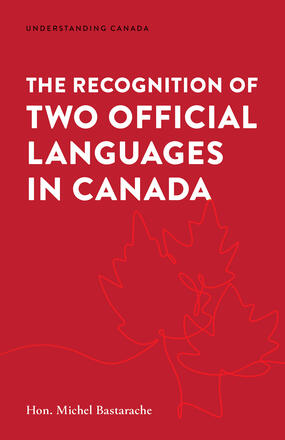
The Recognition of Two Official Languages in Canada
Description
Official bilingualism comprises Canadians’ ability to deal with their own state authorities, and in matters of public life, in the official language of their choice. In The Recognition of Two Official Languages in Canada, former Supreme Court Justice Bastarache focuses on the evolution and the modern fabric of the bilingual state. The object of this book is to explain the nature of language rights and their importance in Canada’s constitutional history. It is intended to educate anyone with an interest in public policy, whether they are students, lawyers, or policy makers, and to inspire in readers a willingness to promote justice in language policies, however best they can. The first chapter presents a list of current language rights in Canada and explains some of the interpretative principles that must be used when analyzing these rights. The next three chapters examine the history of language rights as part of the history of Canada, starting with the pre-Confederation period, then the first few decades following Confederation, and, lastly, the period from the Bilingualism and Biculturalism Commission to today. The final chapter discusses language rights issues present in Canada today, from education to immigration, and looks at some proposed legislative reforms.